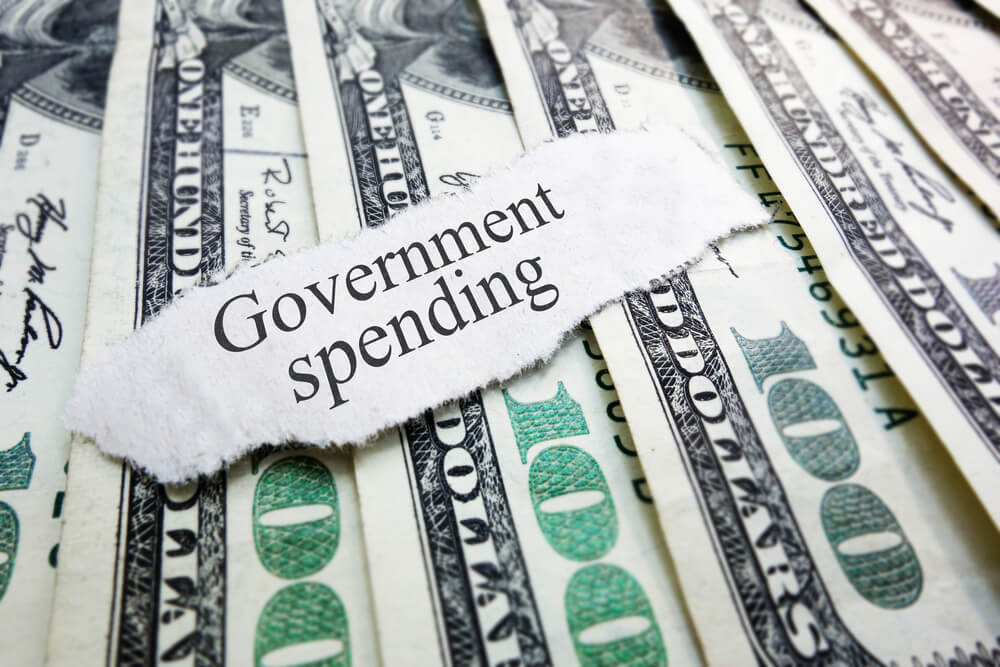Moving to head off a government shutdown that neither party wants, Congress has overwhelmingly approved a compromise spending bill and pledged agreement on a short-term bill to fund the government through early December.
The House on Thursday approved a $147 billion package to fund the Energy Department, veterans’ programs and the legislative branch. The 377-20 vote came a day after the Senate passed the measure, 92-5. The bill now goes to White House, where President Donald Trump is expected to sign it.
The quick action in the House and Senate came as legislative leaders announced agreement on a spending bill to fund the rest of the government through Dec. 7. Rep. Rodney Frelinghuysen, R-N.J., chairman of the House Appropriations Committee, said the short-term plan would be added to a separate spending bill that lawmakers are negotiating to cover the Defense Department and labor, health and education programs.
The stopgap bill would not address Trump’s long-promised wall along the U.S.-Mexico border. GOP leaders have said they prefer to resolve the issue after the Nov. 6 elections.
It was not clear whether Trump would back this approach, but a Republican aide said the White House had not indicated any immediate opposition.
The bill approved Thursday was the first of three spending measures Congress hopes to approve this month to avoid a government shutdown when the new budget year begins Oct. 1.
Passage was so important to Republican leaders that they moved up the Senate vote, citing the threat of Hurricane Florence bearing down on the southeast coast. The House and Senate both adjourned for the week immediately following the budget votes.
Approval of the spending bill marked a departure from recent years, when Congress routinely ignored agency-specific spending measures in favor of massive packages that funded the entire government at once. Trump has said he would not sign another bloated bill.
The three compromise spending plans, if passed by Congress and signed by Trump, would account for nearly 90 percent of annual federal spending, including the military and most civilian agencies.
“This package is not perfect, but that is the nature of compromise,” said Vermont Sen. Patrick Leahy, the top Democrat on the Senate Appropriations Committee.
Leahy said he was concerned that the bill did not do enough to cover costs associated with a program that allows veterans to receive government-paid health care at private facilities.
Across the Capitol, Rep. Mark Walker said he and other conservatives were disappointed by the absence of policy add-ons that were in a House-passed version before budget negotiations with the Senate.
“House Republican priorities were shut out across the board,” said Walker, R-N.C. He said conservatives expect the next round of budget talks to reflect their policy priorities. If not, it will be “difficult to support this funding,” Walker said.
House Speaker Paul Ryan, R-Wis., disputed Walker’s characterization. “I think we got a great amount of victories for our members,” Ryan said.
Ryan said the bill includes money for veterans’ health care, military infrastructure, the electrical grid and nuclear weapons programs, and “represents a return to our most basic responsibility around here: passing appropriation bills.”
While generally upbeat about the progress on spending legislation, lawmakers from both parties are wary of a government shutdown, which Trump has threatened unless he gets billions of dollars for the wall.
“We still are in favor of the wall, we still want to get funding for the wall, but we think the best time to have that discussion is after the election,” Senate Majority Leader Mitch McConnell told Fox News.
McConnell, R-Ky., said there’s “zero” chance of a government shutdown.
Even so, Trump held out the possibility of a shutdown, citing the need to protect the nation’s border by following through on his signature campaign promise.
“If it happens, it happens,” Trump said last week. “If it’s about border security, I’m willing to do anything.”
With Republicans running the White House and both chambers of Congress, GOP leaders worry that voters would blame them for a shutdown, worsening the party’s prospects for retaining congressional control amid an anticipated “blue wave” for Democrats.
The White House in a statement said Trump looks forward to signing the spending package, adding that it “aligns with many of the administration’s priorities.”
The three-bill bundle includes:
- $97.1 billion for the Department of Veterans Affairs and military construction, including a $1.1 billion increase to pay for a law Trump signed to give veterans more freedom to see doctors outside the troubled VA system.
- $44.6 billion for energy and water programs, including programs to ensure nuclear stockpile readiness and spur innovation in energy research. The bill also funds flood-control projects and addresses regional ports and waterways.
- $4.8 billion for the legislative branch, including Congress and the Capitol police.
The spending bill would require Senate candidates to file electronic campaign finance reports — nearly two decades after the requirement was put in place in the House. Senate candidates currently file paperwork with the secretary of the Senate.
The bill omits several partisan policy riders approved by the House, including one that would have repealed an Obama-era clean water rule and another to limit spillovers at dams in the Pacific Northwest to protect salmon. The bill also eliminates funding for a long-stalled nuclear waste dump at Nevada’s Yucca Mountain.
© The Associated Press. All rights reserved.
